The Need for Revolutionary Networks

By: Chris Unger
At Northeastern University, we have decided to join in the revolution for more student-centered, personalized, and impactful learning for all students in K-12 through a developing network of experiential learning educators we call NExT. Having embraced the power of experiential learning as a university for over 100 years, our new venture started last year and has continued this summer as we brought together educators from across the country and beyond to share in their pursuit of experiential learning in their communities. As a university and a Graduate School of Education, we envision a network of educators, educational leaders, schools, school systems, and community partners committed to transforming the past modalities of teaching, learning, and schooling to a new paradigm eschewing the focus on de-contextualized content delivery to the development of student agency, opportunity, and prosperity. And this adventure has brought us to some new friends and allies, including Getting Smart.
As Lennon and McCartney sang,
You say you want a revolution
Well, you know
We all want to change the world
You tell me that it’s evolution
Well, you know
We all want to change the world
The revolution begins first with passion and purpose… and then friends and allies.
Unfortunately, the many forces of our current educational ecosystem (policies, funding, and adopted practices) work to reinforce our everyday perceptions and practices of teaching and learning in our schools. And these mutually-reinforcing constructs also work to maintain and sustain the current status quo of schooling: whole groups of students, in classrooms, in buildings, with content-directed teachers pressing students to memorize pre-determined knowledge and the development of skills and knowledge untethered from personal meaning and authentic application. Current structures and practices often beget the continuation of such structures and practices because people (1) don’t know any better, and/or (2) are fearful or anxious of doing anything different, and/or (3) feel relegated to continue teaching and leading as they have been given the expectations of leadership in schools, districts, and states–most formidably reinforced by how we continue to measure success in our schools: standardized test scores. For us, breaking free of the status quo and venturing into the realm of educating on behalf of student opportunity and agency requires a bit of a revolution, with like-minded individuals choosing to go against the grain, speak to a different set of values, and join arms in forging ahead with new ways of thinking about schooling.
In this effort, many of us have been able to connect with others throughout the country and beyond who are thinking about teaching, learning, and schooling in new ways that far better support our youth in the pursuit of their interests, passions, and ways to contribute back to humanity. The reality is, revolutions gain traction and energy through networks, joining arm-in-arm, gaining support from one another, and ultimately taking collective action. When questioning the status quo and surmounting an effort to challenge it and create new “images of possibility,” there is nothing better than to join in this effort with friends and allies.
To what end?
As for the revolution toward re-imagining teaching, learning, and schooling, NExT (and our Graduate School of Education) has made a commitment to being an active community hub for the pursuit of experiential learning in our K12 schools and school systems that contribute to student and community prosperity. We have committed ourselves to connecting educators, education leaders, schools and school systems, industry, and community partners who are working to develop a new paradigm of teaching and learning through their creative, courageous, and inspired efforts.
This includes such places as IowaBig, BVCAPS, and One Stone, who have completely redesigned “school” so that students are pursuing their interests and passions in the real world through community- and industry-embedded projects. In short, they are flipping the focus from meaningless knowledge to meaningful work. But these efforts to re-think teaching and learning also extend to individual educators in their classrooms and whole districts with an eye to making the transformation at scale, such as in Barrington, RI and Natick, MA. Through our engagement in NExT and the relationship between higher education, industry, communities, and K12 schools, we are seeing a new paradigm of teaching and learning emerge – much more student-centered, personalized, whole-student, and transformative.
You say you got a real solution
Well, you know
We’d all love to see the plan
You ask me for a contribution
Well, you know
We’re all doing what we can
In this effort, this is what we have learned: There are educators across the country and beyond creating new “images of possibility” that demonstrate how teaching, learning, and schooling can look completely different, providing students with the kinds of experiences that far better support the development of personal agency, competencies, skills, and opportunity.
What we are also learning is that many educators from across the country don’t know that such creative learning communities exist. Hence, they navigate their own feelings of discomfort with the current state of education without the benefit of these other “images of possibility.” Connections, such as those created at NExT, offer educators new images that can inspire their own bold visions of learning and schooling. In addition, not knowing who these bold adventurers are and how these bold adventurers have taken their impassioned ideas and made them a reality, they lack the potential guidance and insights of others as to how they could similarly pursue their own creative and innovative endeavors for the benefit of their students and communities.
So what is the potential power of a network of educational entrepreneurs forging new models of teaching, learning, and schooling for the benefit of their youth, their communities, and the world? Networks need to be an ultimate connector – to inspire and empower one another. To what end? To find, connect, and build relationships that support one another’s BOLD ideas to not only become a reality, but also to find points of collaboration that can help us collectively press up against the current status quo of schooling, and to venture new modalities of student and community engagement that benefits them far better than what our current ecosystem provides for our youth. As so well put in Tom Vander Ark and Lydia Dobyns’ new book, Better Together, it is in such networks that we can both support and catalyze innovation and the kinds of entrepreneurial activity we need not only to transform how we think about teaching, learning, and schooling, but also HOW we can pursue such innovations in our own communities.
Yes, we are indeed better together.
You tell me it’s the institution
Well, you know
You’d better free your mind instead
Ultimately, the power of revolutionary networks is to first clearly and powerfully point out a need (in short, intellectually and viscerally manifest a call to action), then to imagine new possibilities, and then to connect one another so that we can collectively create a new reality. Whether it be in the name of social justice, or personal and societal prosperity, or a better world, we are at the cusp of something wonderful: the transformation of how we think about teaching, learning, and schooling and the growth of networks that can inspire, empower, and support the creation of these new possibilities. Networks (such as Education-Reimagined, BigPicture Learning , New Tech Network, the CAPS Network, or our own NExT network), and incubators (such as 4.0 Schools) and education venture accelerators (such as New Schools Venture Fund) are all examples of the kinds of networks that can have a collective impact on how we think about education. (See more networks here.)
More importantly, it is how these networks can inspire and empower us all to rethink, and pursue a new reality in, our educational ecosystem. In doing so, they can make a real difference in the agency of, sense of possibility in, and opportunities for our youth. The status quo in our educational ecosystem is strong and it can take a lot of energy to work upstream to pursue new models of teaching and learning within our current systems of schooling. And doing so without the help and support of others is hard. But doing so with friends and allies who share the same vision pressing to challenge our current assumptions of what school should be can make all the difference in the world – both figuratively and literally.
As stated at the beginning of this piece,
You say you want a revolution
Well, you know
We all want to change the world
As we are learning, networks can be a big part of how we get there.
For more, see:
- Building 21: Designing a Network for Competency-Based Education
- 101 Top School and Charter Networks
- Better Together: How to Leverage School Networks for Smarter Personalized and Project Based Learning
Chris Unger is Senior Fellow and Faculty of the Doctor of Education Program at Northeastern University. Connect with him on Twitter: @Chris_Unger
Stay in-the-know with all things edtech and innovations in learning by signing up to receive the weekly Smart Update. This post includes mentions of a Getting Smart partner. For a full list of partners, affiliate organizations and all other disclosures, please see our Partner page.


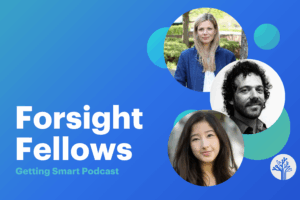
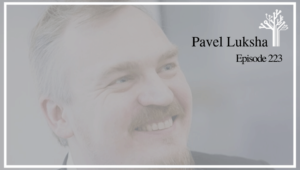
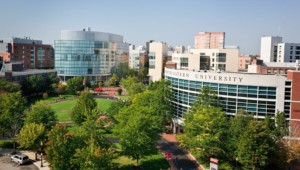
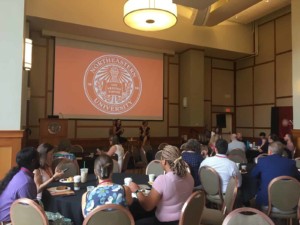
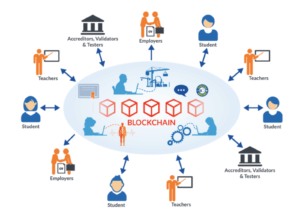
0 Comments
Leave a Comment
Your email address will not be published. All fields are required.